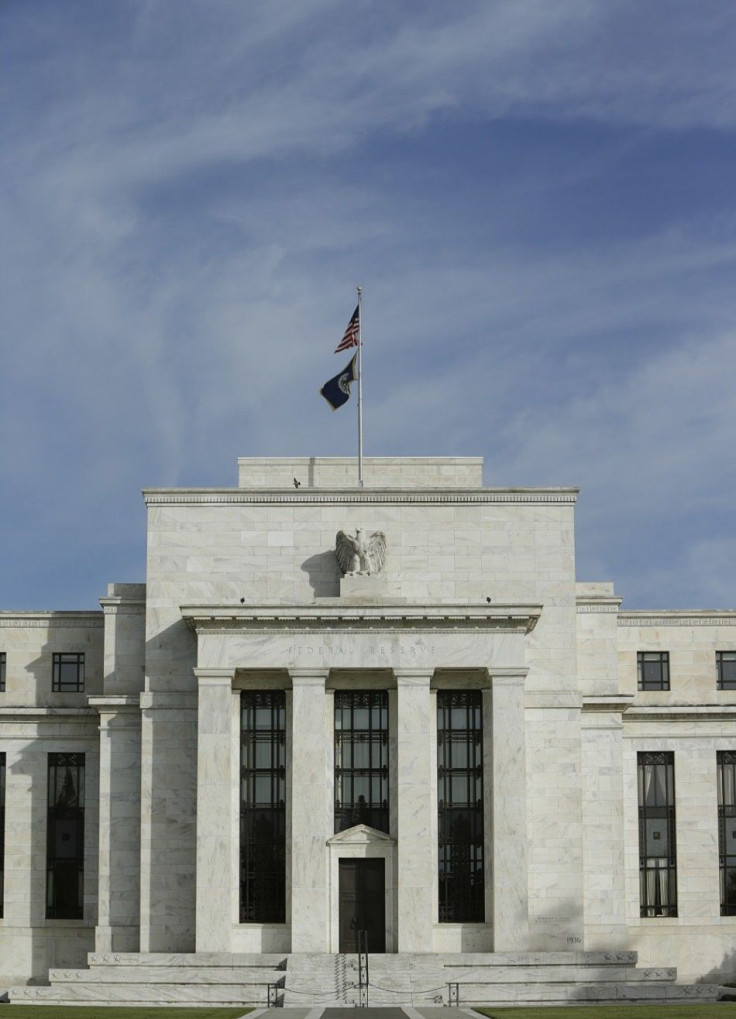Global Markets Outlook – January 8, 2015

Fed rates won't move in Q1
Considering the focus of the markets this week, the Fed minutes have provided a welcome distraction to the preoccupation with crude.
The colour provided in the December minutes was highly correlated with the statement and Chairperson Yellen's press conference.
There was no real new information on how monetary policy will move this year. However, there were some parts that need to be highlighted.
The key points were:
- A high degree of consensus around changing forward guidance, meaning 'most members' thought it was no longer appropriate to expect rates to remain on hold for a 'considerable time'. Instead, 'the Committee judges that it can be patient in beginning to normalize the stance of policy' in the words of Janet Yellen herself. We also know that 'patience' refers to 'at least a couple of meetings', discussed at length at the December meeting, according to last night's release.
- The more dovish members remain concerned that inflation could consistently undershoot the Fed's 2% target level. This was echoed in the October minutes, backing the soft approach to raising rates in 2015. Interestingly, the members highlighted the falling oil price as a factor in the undershooting inflation expectations and see inflation 'somewhat below' 2% over the forecasted range (now until 2017).
- However, the board appears more optimistic in its economic forecast, pointing to stronger consumer spending in the second half of last year. The medium-term view was also raised slightly.
So all in all, a very level read with very level language, which will help maintain market and currency stability. The overall conclusion from the minutes is Q1 rate increases will not happen and the possibility of an April rise looks almost as unlikely. We remain of the view June or July is the most likely time, and the more global instability we see, the further out this date will get.
Oil was again a focus for the market as the US exported a record amount of crude in November. After a five-year growth plan in shale gas and other oil production projects, shipments in November surged 34% to 502,000 barrels a day.
As mentioned on Monday, Russia is producing at levels not seen since the days of the Soviet Union. Iraq has announced it will be raising production to record levels at the end of the month, while Saudi Arabia is maintaining its production levels - these are consistently above its monthly target levels.
The biggest loser in the production war is fast becoming Venezuela; the social nation is effectively broke and President Maduro is currently en route to China to negotiate increased demand for oil in return for new loans. I see this as unlikely as the Chinese are already importing 640,000 barrels a day from them to pay off the loans it has already provided.
President Maduro is also heading to key export nations in the Gulf to 'discuss a unified response to the crisis in oil' but it's likely to fall on deaf ears. Crude managed to settle higher overnight yet it remains below US$50 barrel.
Ahead of the Australian open
With the US markets bucking a five-day losing streak, the carnage of the past two days should abate today. We are calling the ASX up 25 points to 5379. Energy stocks should bounce as the shorts of the past two days unwind. The snap back may even overshoot, so be careful here. We are also 48 hours away from non-farm payrolls and the trading lull they cause may see a quiet session in general for Asia as the data drop approaches.
Asian markets opening call | Price at 8:00am AEDT | Change from the Offical market close | Percentage Change |
Australia 200 cash (ASX 200) | 5,386.20 | 33 | 0.61% |
Japan 225 (Nikkei) | 17,016.00 | 131 | 0.78% |
Hong Kong HS 50 cash (Hang Seng) | 23,788.60 | 107 | 0.45% |
China H-shares cash | 12,078.40 | 87 | 0.73% |
Singapore Blue Chip cash (MSCI Singapore) | 373.23 | 2 | 0.48% |
US and Europe Market Calls | Price at 8:00am AEDT | Change Since Australian Market Close | Percentage Change |
WALL STREET (cash) (Dow) | 17,587.00 | 194 | 1.10% |
US 500 (cash) (S&P) | 2,026.65 | 22 | 1.10% |
UK FTSE (cash) | 6,453.10 | 78 | 1.19% |
German DAX (cash) | 9,596.70 | 115 | 1.21% |
Futures Markets | Price at 8:00am AEDT | Change Since Australian Market Close | Percentage Change |
Dow Jones Futures (March) | 17,512.00 | 191.00 | 1.10% |
S&P Futures (March) | 2,020.00 | 21.63 | 1.08% |
ASX SPI Futures (March) | 5,340.50 | 26.00 | 0.50% |
NKY 225 Futures (March) | 17,075.00 | 142.50 | 0.84% |
Key inputs for the upcoming Australian trading session (Change are from 16:00 AEDT) | Price at 8:00am AEDT | Change Since Australian Market Close | Percentage Change |
AUD/USD | $0.8070 | 0.0002 | 0.02% |
USD/JPY | ¥119.120 | 0.215 | 0.18% |
Rio Tinto Plc (London) | £29.30 | -0.15 | -0.51% |
BHP Billiton Plc (London) | £13.40 | 0.16 | 1.17% |
BHP Billiton Ltd. ADR (US) (AUD) | $28.49 | 0.38 | 1.37% |
Gold (spot) | $1,211.90 | -1.56 | -0.13% |
Brent Crude (March) | $52.13 | 0.59 | 1.14% |
Aluminium (London) | 1792 | 6.00 | 0.34% |
Copper (London) | 6126.75 | -5.25 | -0.09% |
Nickel (London) | 15531 | 274.00 | 1.80% |
Zinc (London) | 2137 | -37.75 | -1.74% |
Iron Ore (62%Fe Qingdao) | $70.96 | -0.53 | -0.74% |
[Kick off your trading day with our newsletter]
More from IBT Markets:
Follow us on Facebook
Follow us on Twitter
Subscribe to get this delivered to your inbox daily




















